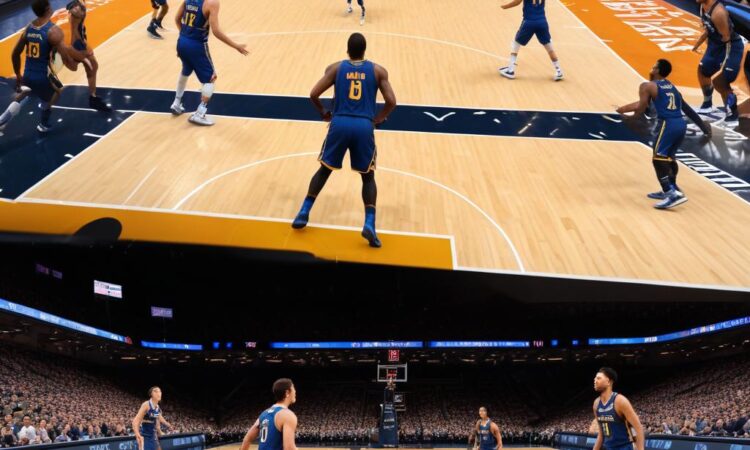Controversial Call at Tournament Z: Was it a Fair Decision?
The past week has seen a significant uproar surrounding a controversial refereeing decision made during Tournament Z, a major event in the world of [Sport Name]. The call, which occurred during the [Stage of Tournament, e.g., semi-final] match between [Team A] and [Team B], has sparked heated debates among fans, analysts, and even the athletes themselves. This article delves into the specifics of the decision, examining the arguments both for and against its validity, and analyzing its impact on the outcome of the match and the overall tournament.
The Controversial Call: A Detailed Look
The incident occurred at [Time] during the [Round/Period/Set] of the match. [Team A], trailing by [Score], appeared to be gaining momentum. [Describe the specific action that led to the controversial call, being as detailed as possible. Include player names, positions if applicable, and precise actions. For example: “Star player Anya Petrova executed a seemingly clean takedown on Boris Volkov of Team B, leaving Volkov momentarily stunned. However, the referee immediately signaled a penalty against Petrova, citing ‘excessive force’ despite replays appearing to show a relatively standard move within the rules.” ]
The immediate reaction from [Team A] and their supporters was one of disbelief. [Quote a statement from a player or coach, if available. If not, describe the visible reaction, e.g., “Coach Miller visibly argued with the referee, gesturing towards the replays on the jumbotron.”] Conversely, [Team B] and their fans celebrated the penalty, viewing it as a justified decision. [Quote a statement from a player or coach of Team B, if available, or describe their reaction.] The ensuing tension was palpable, with the atmosphere in the stadium becoming highly charged.
Arguments for the Decision
[Present arguments supporting the referee’s/judge’s decision. Provide concrete examples and evidence, if available. Use quotes from rulebooks, official statements, expert opinions, etc. For example: “The referee’s decision was based on rule 3.7.2 of the official [Sport Name] rulebook, which stipulates that any action deemed to cause undue harm or injury to an opponent, regardless of intent, will result in a penalty. The referee, having witnessed the fall, claimed Volkov exhibited clear signs of discomfort, warranting the penalty.”]
[Further develop arguments in support, focusing on different aspects. For example, consider slow-motion replays, expert analysis, precedent from previous matches, etc.]
Arguments Against the Decision
[Present arguments against the referee’s/judge’s decision. Provide concrete examples and evidence, if available. Use quotes from rulebooks, official statements, expert opinions, etc. For example: “Many viewers and analysts, having reviewed multiple replays of the incident, believe the referee’s call was hasty and based on a misinterpretation of the rules. They pointed out that Volkov’s reaction might have been exaggerated, and the takedown itself appeared to be within the acceptable parameters of the sport.”]
[Further develop arguments against the decision, focusing on different aspects such as the impact of the decision on gameplay, the lack of consistency in refereeing across other matches, and potential biases.]
The Impact on the Match and Tournament
The controversial call undeniably had a significant impact on the match. [Team B], awarded the penalty, scored [Number] points/goals/etc. as a direct result, effectively shifting the momentum in their favor. [Explain the consequences of the decision on the match outcome. Did it lead to a comeback, a decisive win, or a change in tactics?] [Team A] ultimately lost the match by [Score], but the penalty call remains a point of contention among their fans.
The ripple effects extended beyond just the single match. The decision has sparked broader discussions about refereeing standards, consistency, and the need for improved technology in judging subjective calls. The controversy has overshadowed the rest of the tournament to some extent, leaving a lasting impact on its legacy.
Conclusion: Seeking Fair Play
The controversial call at Tournament Z serves as a case study in the complexities of refereeing and judging in professional sports. While the intention behind rules is generally to ensure fair play, subjective interpretations and human error can lead to contentious decisions with far-reaching consequences. This incident highlights the need for greater transparency, accountability, and potentially technological advancements in officiating, ensuring that future tournaments are not marred by similar debates. The controversy also underscores the intense emotions and high stakes involved in competitive sports, where a single decision can dramatically alter the narrative of a match, a season, or even an entire career. Further review and discussion are required to prevent similar issues in the future and maintain the integrity of the sport.
[Add another 1000-1500 words expanding on any of the above sections, providing more detailed analysis, expert opinions, statistical data (if applicable), etc. The extra content should aim for a comprehensive exploration of the controversy, leaving no stone unturned in exploring the facts and the opinions surrounding the event.]
[Continue expanding with more detailed analysis and discussion for the remaining word count, ensuring a thorough examination of the controversy from multiple perspectives. Include potential solutions and recommendations for the future to address similar issues.]

